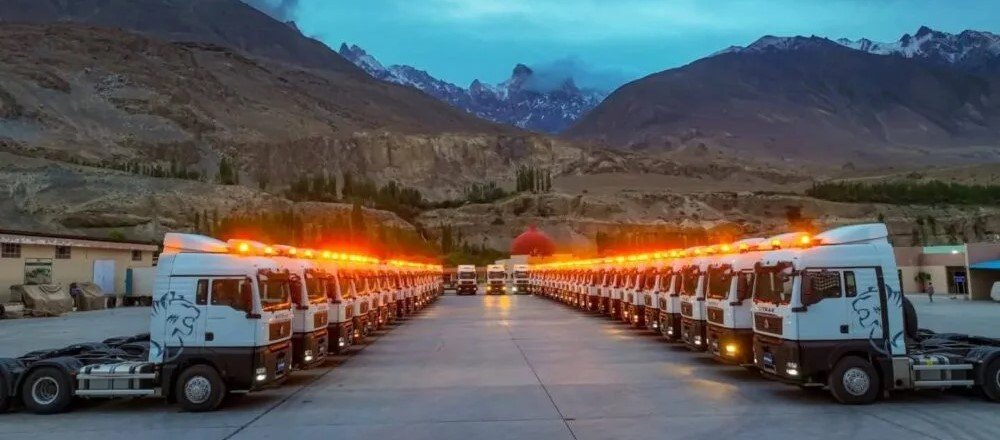by Nadeem Rumi
The controversy over the imposition of taxes and the implementation of an international customs transit system at Sost Dry Port has intensified. Sost Dry Port is Gilgit-Baltistan’s main entry point for Chinese goods through the Khunjerav Pass and a critical hub for the China-Pakistan Economic Corridor (CPEC).
Tensions rose when the military-run National Logistics Cell (NLC) began overseeing the Transports Internationaux Routiers (TIR), a system designed to facilitate duty-free cross-border transportation of goods in sealed containers. Pakistan ratified the UN TIR Convention in 2017, committing to its standards.
Local traders fear this move enables the NLC to monopolise regional trade, intensifying deepening distrust between GB and the federal government.
Though administered by Pakistan, G-B remains outside the country’s constitutional structure. Unlike the four provinces, G-B lacks formal recognition and representation, owing to its link to the unresolved Jammu and Kashmir dispute. This legal ambiguity has historically exempted the region from federal taxes—a position supported by a 1999 Supreme Court judgment, which emphasized that taxes should not be imposed without granting political rights.
In addition to Customs Duty, the Federal Board of Revenue (FBR) has been collecting Income Tax and Sales Tax on imports since 2021 at the Sost Dry Port, drawing strong criticism from traders, local residents, political and human rights activists. They contend that imposing such taxes on a constitutionally unrecognised region lacking parliamentary representation is both unjust and unlawful.
The dispute intensified when over 250 consignments were held at the port last year due to contested duties, prompting protests and legal challenges.
However, the enforcement of TIR has been inconsistent, eroding confidence in legal institutions. Further complicating matters are allegations that the TIR system is being misused. Under TIR rules, goods in transit are exempt from duties until they reach their final international destination.
Critics claim the NLC clears items under TIR but diverts them for domestic sale, sidestepping customs regulations. If true, this would constitute a serious breach, resembling smuggling and disadvantaging local businesses.
This situation underscores the unresolved constitutional and political status of Gilgit-Baltistan. The federal government is attempting to collect revenue from a region it has yet to formally integrate in its federation, without offering the rights and protections enjoyed by other provinces. This approach erodes Pakistan’s stance at UN on the status of the region, its legal legitimacy and public trust.
The broader issue is Pakistan’s piecemeal integration of G-B—treating it as part of the country for strategic and economic purposes while denying it full constitutional status. Thisambiguous stance breeds resentment among the local people and risks alienating a region vital to Pakistan’s connectivity and CPEC ambitions.
Recent protests at the Sost port and blockades of the KKH, the only highway that connects both the countries highlight how legal ambiguity can quickly translate into civil unrest.
- Also read: Highway tolls, hollow rights
If the government intends to tax G-B like other provinces, it must also grant it equivalent political representation, legal clarity, and constitutional recognition. Failing to do so could destabilise the region and damage Pakistan’s national and international credibility.
Pakistan now faces a critical choice: pursue meaningful political reform and integrate Gilgit-Baltistan into its constitutional framework, or continue exploiting its ambiguous status for revenue at the cost of national unity and democratic values. This is no longer just a tax issue—it is a test of Pakistan’s commitment to justice, equality, and federal cohesion.
Gilgit-Baltistan deserves more than contested taxation and legal limbo. It deserves a future rooted in rights, representation, and respect. The moment to act is now.

Nadeem Rumi has obtained Master’s degree in sociology. He is a political and environmental activist writing essays on political, social and environmental issues with special focuss on grassroots persective. https://x.com/NadeemRumi

The High Asia Herald is a member of High Asia Media Group — a window to High Asia and Central Asia

